Posted on: 5 June 2020
Global lessons in a global emergency
Hello, my name is John.
 An epidemic that took the world by surprise. A simple RNA virus that started in bats and spread to humans. It began slowly and then gathered pace with exponential speed. Governments were complacent and slow to act, but eventually they shut borders, closed schools and businesses, cancelled football matches. Society was transformed by fear: no more hugging or touching, obsessive hand washing and hypochondriasis.
An epidemic that took the world by surprise. A simple RNA virus that started in bats and spread to humans. It began slowly and then gathered pace with exponential speed. Governments were complacent and slow to act, but eventually they shut borders, closed schools and businesses, cancelled football matches. Society was transformed by fear: no more hugging or touching, obsessive hand washing and hypochondriasis.
Health care workers became the canaries in the mine – the first to catch and spread the infection. Hospital and health care centres became amplification centres for transmission and naturally the people stayed away. The health care workers became heroes but also lepers as communities began worry that they were germ spreaders.
There were endless debates about PPE with guidance that changed weekly. Health care workers stepped nervously into red zone wards, never having been so scared in their professional lives, but with incredible resilience adapted to their new surroundings with speed and confidence.
This was the Ebola epidemic in 2014. I was one of the first NHS volunteers to go out to Sierra Leone where I worked with the British Army to set up an Ebola Treatment Centre and then run it and support the wider public health response in a rural community 6 hours from the capital of Freetown. I wrote a blog and recorded a short series for BBC Radio 4 at the time and I am struck by the similarities and lessons to our current COVID pandemic.
 In 2014 it was the WHO that faced the barrage of criticism for being too slow. They certainly learnt their lesson and in 2020 they have been a beacon of science and enlightenment. Clear guidance based on science and protection of lives. They have pushed hard for early action, travel bans, lockdowns and testing. They have celebrated the countries that have been role models in their efforts to contain infections and save lives. They have poured scorn on the notion of herd immunity and championed the preciousness of every human life. They know what is needed to stop an epidemic – effective isolation and infection control, robust protection for staff, testing, testing and more testing, and good old fashioned shoe-leather epidemiology to track contacts and stop the viral fire spreading.
In 2014 it was the WHO that faced the barrage of criticism for being too slow. They certainly learnt their lesson and in 2020 they have been a beacon of science and enlightenment. Clear guidance based on science and protection of lives. They have pushed hard for early action, travel bans, lockdowns and testing. They have celebrated the countries that have been role models in their efforts to contain infections and save lives. They have poured scorn on the notion of herd immunity and championed the preciousness of every human life. They know what is needed to stop an epidemic – effective isolation and infection control, robust protection for staff, testing, testing and more testing, and good old fashioned shoe-leather epidemiology to track contacts and stop the viral fire spreading.
We have had other deadly coronavirus epidemics in recent history. In 2003 SARS infected 10,000 and killed almost 1000 people. In 2012 MERS infected 35,000 and killed almost 10,000. In 2014 Ebola (a filovirus) infected almost 30,000 people and killed 12,000. COVID19 is less fatal than these infections but far more infective – it has washed over the countries of the world like a giant tidal wave, and we have been left clinging to jetsam.
All the countries effected by these outbreaks learnt harsh lessons and prepared in earnest for the next inevitable epidemic. In Europe we have become blasé about communicable disease – it is something that happens in foreign lands to poor people. In the UK public health budgets have fallen by around 25% in real terms over the last five years. Local communicable disease and health protection systems have been centralised and that has led to a loss of community knowledge and adaptability to context.
 We will learn our lesson this time. As Eisenhower famously said, ‘plans are useless but planning is indispensable’. The large variation in death rates from COVID19 across socio-economic and ethnic groups has brought into sharp relief the inequalities in our society and the underlying distribution of risk factors for and high levels of chronic disease. The pandemic has highlighted historical underinvestment in public health and epidemiological research but also demonstrated that by working in collaboration across agencies and involving researchers, we can be more effective. As we move into recovery we have a unique opportunity to intervene intensively and effectively to mitigate some of the added disadvantage caused by the response to the pandemic and more generally build a better future, informed by timely robust evidence about new ways of working and novel interventions and their impact across the whole system over the longer term. We will need stronger public health and better epidemiology – these are areas that we have neglected in recent years.
We will learn our lesson this time. As Eisenhower famously said, ‘plans are useless but planning is indispensable’. The large variation in death rates from COVID19 across socio-economic and ethnic groups has brought into sharp relief the inequalities in our society and the underlying distribution of risk factors for and high levels of chronic disease. The pandemic has highlighted historical underinvestment in public health and epidemiological research but also demonstrated that by working in collaboration across agencies and involving researchers, we can be more effective. As we move into recovery we have a unique opportunity to intervene intensively and effectively to mitigate some of the added disadvantage caused by the response to the pandemic and more generally build a better future, informed by timely robust evidence about new ways of working and novel interventions and their impact across the whole system over the longer term. We will need stronger public health and better epidemiology – these are areas that we have neglected in recent years.
In West Yorkshire we are already starting to build on our unique strengths in public health and epidemiology through the establishment of ActEarly North: creating a network of people-powered, data linked population laboratories to co-produce, implement and evaluate multiple novel early life interventions to prevent disease, improve health over the lifecourse and reduce inequalities. It will provide a whole-system collaboratory where the public, scientists, policy leaders and practitioners work with each other to develop and test early life upstream prevention solutions, supported by efficient platforms for rigorous evaluation, modification and wider rollout. It will provide robust evidence about the cost-effectiveness of novel prevention interventions to inform policy makers about where to invest to obtain long-term, best value for money. We hope that ActEarly North will act as a national beacon, attracting top scientists to work in West Yorkshire and leveraging new research and innovation investment.

Have a good weekend and stay safe,
John
What else has been happening this week?
Volunteers Week 2020
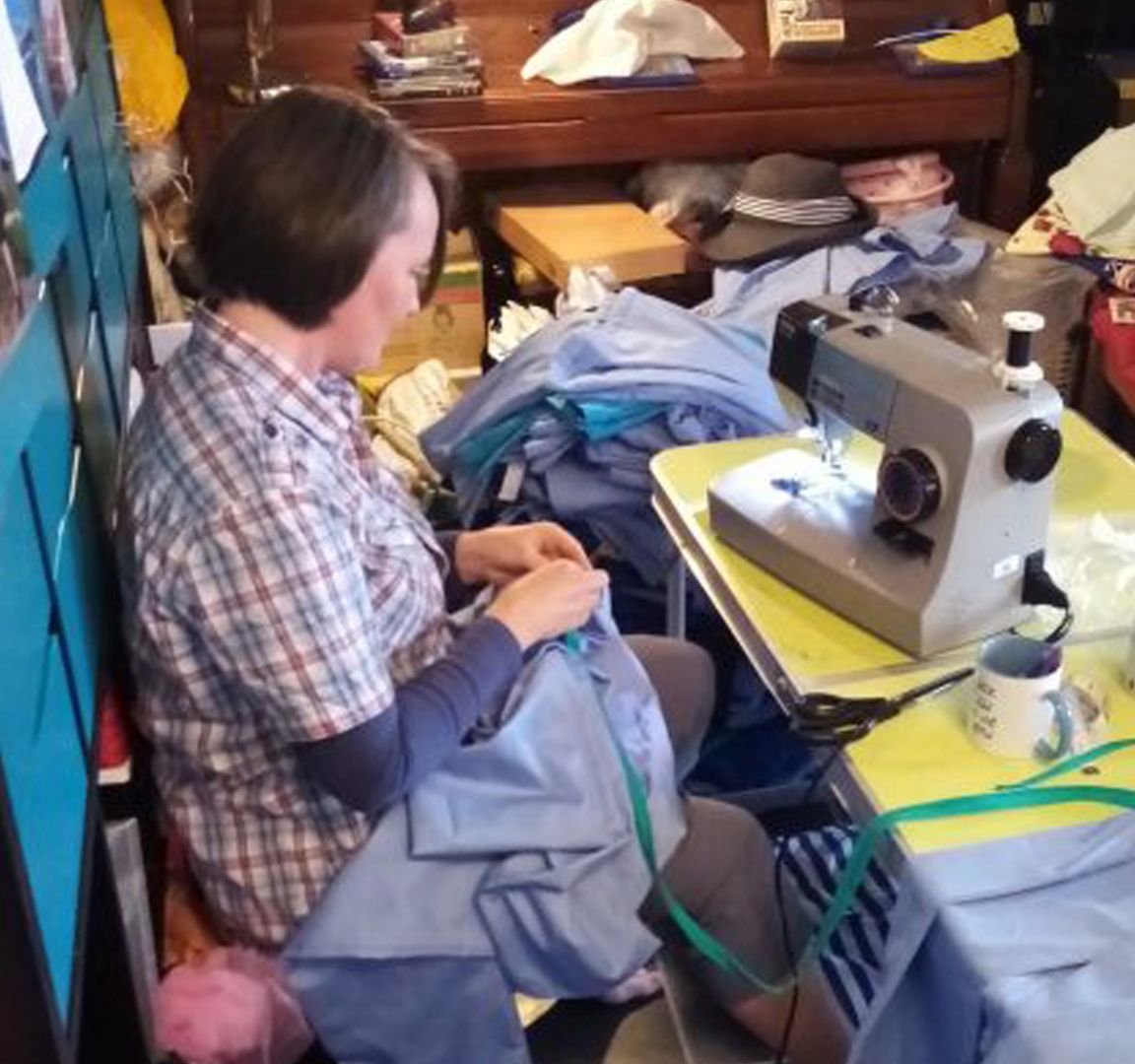
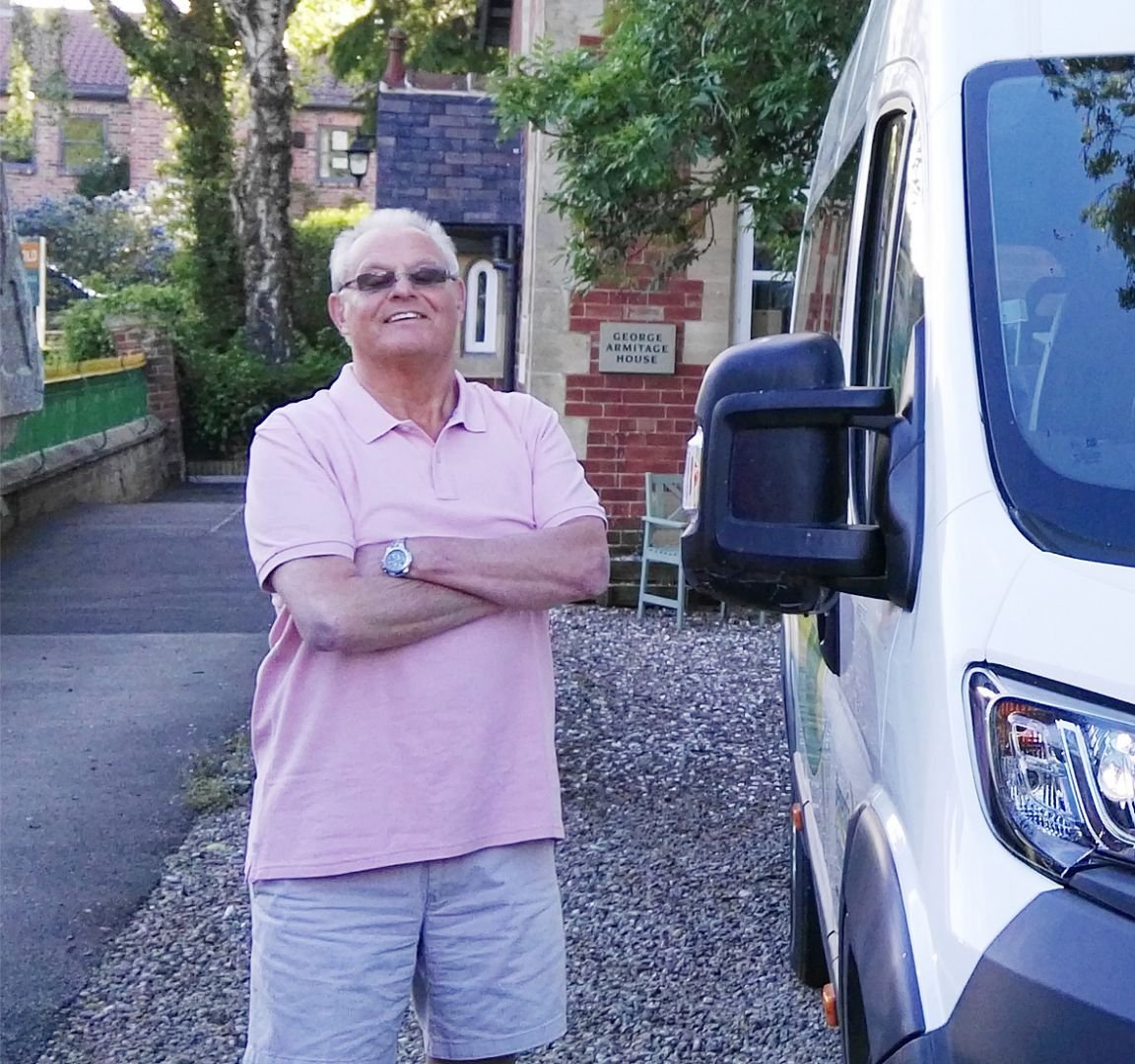
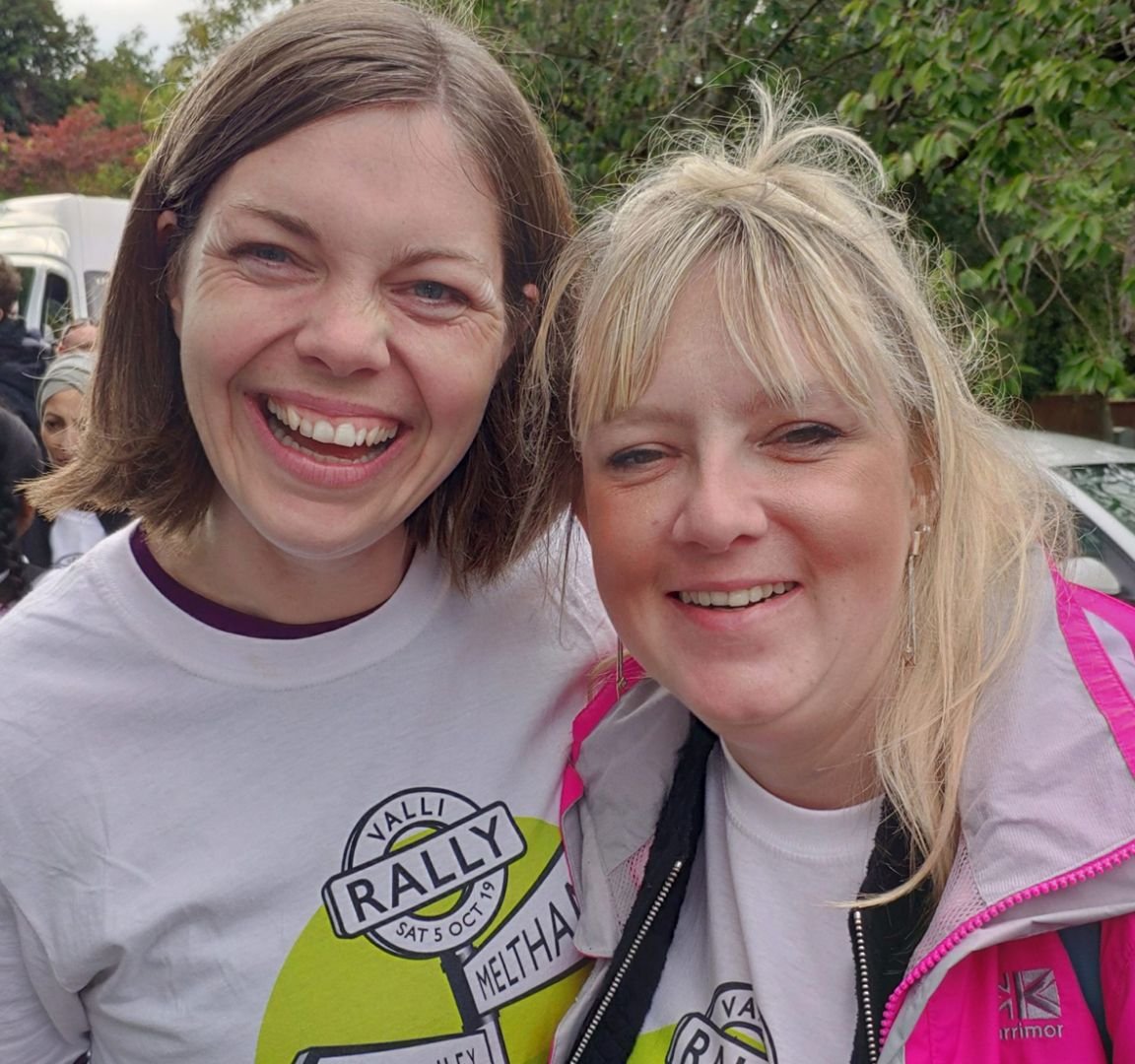
Volunteers are playing a vital role in helping our communities through the Covid-19 crisis. Whether they are providing meals or offering a listening ear to those in need of extra support, their dedication will continue to be crucial to help us move forward.
The country has seen a surge in volunteers over the past few months in response to the pandemic. These new volunteers are building on the already strong network of people who give their time, skills and commitment to help others.
This Volunteers’ Week, we’ve been celebrating the difference volunteers are making across West Yorkshire and Harrogate in this bulletin and on our volunteer stories page.
The Personal Protective Equipment (PPE) Programme Group
The Personal Protective Equipment (PPE) Programme Group met last Friday. Chaired by Mel Pickup, CEO for Bradford Teaching Hospitals NHS Foundation Trust, the purpose of the group is to ensure PPE supply chain arrangements are in place to maintain, manage and forecast need. The group includes colleagues from across the Partnership, including clinicians, procurement /supply specialists and representation from West Yorkshire Local Resilience Forum and NHS England. The work also covers primary care, smaller healthcare providers and new representatives will be joining the group.
Work is underway across West Yorkshire and Harrogate to further improve access to the national and alternative supply chains; the flow and distribution of PPE, and to ensure that partners can support each other with mutual aid when necessary. The aim is to have enough PPE to keep our staff protected and to ensure there are local reserves stored and available to draw upon when needed.
Test, Trace, Isolate Programme
The second West Yorkshire and Harrogate Covid-19 Test, Trace and Isolate Programme, met Friday 29 May. The programme includes colleagues from Public Health England, public health in councils, NHS England, primary care and clinical commissioning groups. The WY&H HCP SRO for the programme is Martin Barkley, CEO for Mid-Yorkshire Hospitals NHS Trust. Martin will also be the regional lead for the overarching North East and Yorkshire programme.
£300m funding for councils in England to develop outbreak control plans has been ring-fenced for an initial 12-18 month programme. The national ‘Test and Trace’ service is now live. The Department of Health of Social Care (DHSC) has created an infographic explaining the process and a Q&A document to help councils and other organisations communicate and promote the service. DHSC has also published a range of new guidance on the test and trace service. This includes: guidance for employers, businesses and workers. The guidance for households with possible coronavirus infection has also been updated. We will keep you updated as the work develops.
The Partnership Board
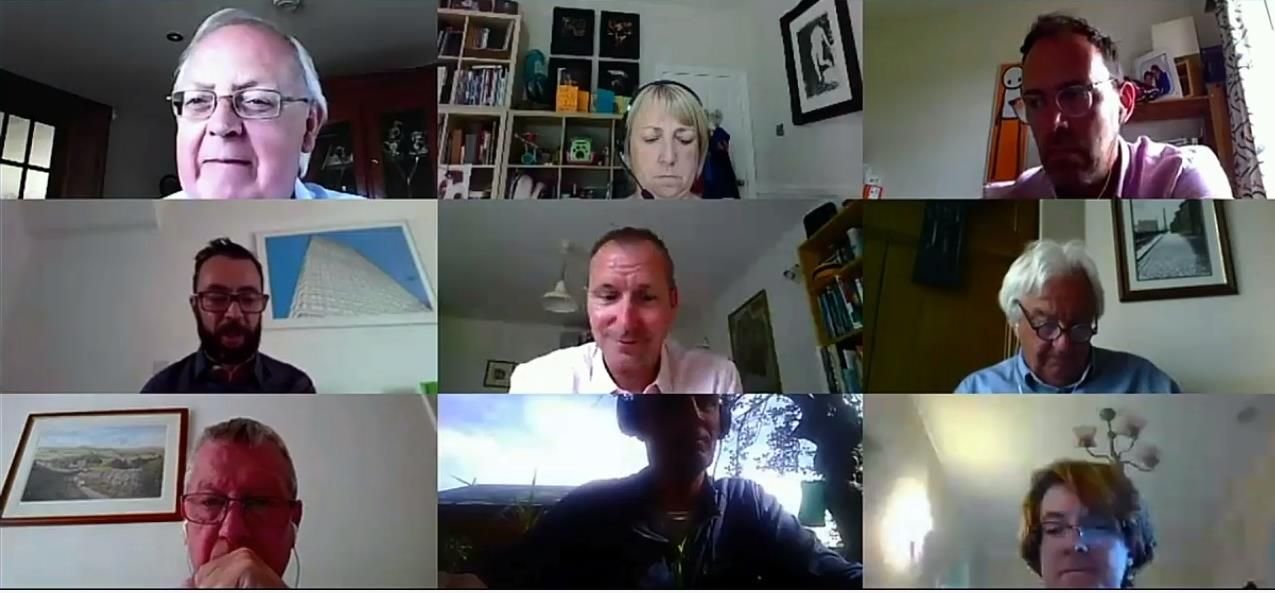 The Partnership Board met virtually in public for the fifth time on Tuesday. It was chaired by Cllr Swift, Leader of Calderdale Council. Our Partnership is bringing the local NHS, councils and communities closer together by establishing a new Board to strengthen joint working arrangements between all organisations involved, and most importantly to further improve health and care for the 2.7 million people living across the area.
The Partnership Board met virtually in public for the fifth time on Tuesday. It was chaired by Cllr Swift, Leader of Calderdale Council. Our Partnership is bringing the local NHS, councils and communities closer together by establishing a new Board to strengthen joint working arrangements between all organisations involved, and most importantly to further improve health and care for the 2.7 million people living across the area.
Board members discussed the Partnership’s response on COVID-19, including the work we are doing to better understand and respond to the impact of the pandemic, and our approach to stabilisation and reset, including economic recovery. There were a number of questions from members of the public. This included questions on testing, GP online consultations and when will face to face appointments come back; ethical decision making, employment and economic recovery. All responses to questions will be posted on our website here.
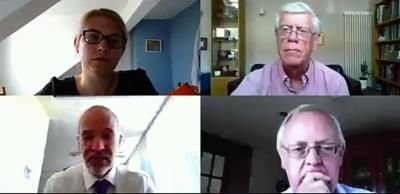 The meeting discussed the work led by Healthwatch around gathering people’s experiences and feedback during the COVID-19 pandemic. Helen Hunter, CEO for both Calderdale and Kirklees Healthwatch discussed the engagement work which specifically focuses on the experience of people accessing health and care services. There was also an update on understanding the direct and indirect impacts of COVID-19 on different population groups led by Robin Tuddenham (CEO for Calderdale Council, Dr James Thomas (Bradford district and Craven Clinical Commissioning Group), and Sarah Smith (Programme Director) representing our Improving Population Health Management Programme. Robin and James are co-chairs for the programme.
The meeting discussed the work led by Healthwatch around gathering people’s experiences and feedback during the COVID-19 pandemic. Helen Hunter, CEO for both Calderdale and Kirklees Healthwatch discussed the engagement work which specifically focuses on the experience of people accessing health and care services. There was also an update on understanding the direct and indirect impacts of COVID-19 on different population groups led by Robin Tuddenham (CEO for Calderdale Council, Dr James Thomas (Bradford district and Craven Clinical Commissioning Group), and Sarah Smith (Programme Director) representing our Improving Population Health Management Programme. Robin and James are co-chairs for the programme.
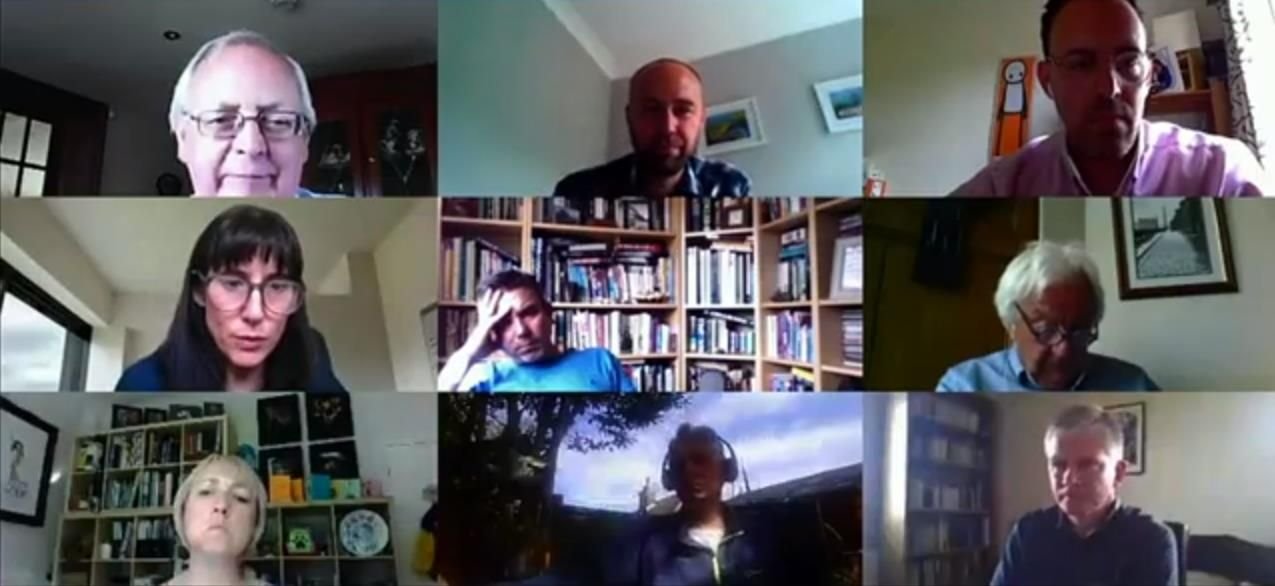 Our programme director, Ian Holmes, led a discussion on supporting the Partnership’s stabilisation and reset work now that we are in phase two of the pandemic. The focus is turning towards how we continue to meet the needs of people with COVID-19 and other conditions; how we begin to address some of the widening inequalities resulting from the pandemic; and how we continue to support health and care staff throughout this period. We will develop a response that is consistent with our five year strategy, and address the priorities which have been communicated to us by NHS England and NHS Improvement.
Our programme director, Ian Holmes, led a discussion on supporting the Partnership’s stabilisation and reset work now that we are in phase two of the pandemic. The focus is turning towards how we continue to meet the needs of people with COVID-19 and other conditions; how we begin to address some of the widening inequalities resulting from the pandemic; and how we continue to support health and care staff throughout this period. We will develop a response that is consistent with our five year strategy, and address the priorities which have been communicated to us by NHS England and NHS Improvement.
West Yorkshire devolution and economic recovery was also on the agenda. Cllr Susan Hinchliffe, Chair of the West Yorkshire Combine Authority and Leader of Bradford Council gave an overview of the ‘Devolution Deal’ for West Yorkshire, which was announced as part of the Budget in March 2020. This paper will also provide an overview of the work being led by the West Yorkshire Economic Recovery Board, and the support being delivered by the West Yorkshire Combined Authority and the Leeds City Region Enterprise Partnership (the LEP).
West Yorkshire and Harrogate Clinical Forum
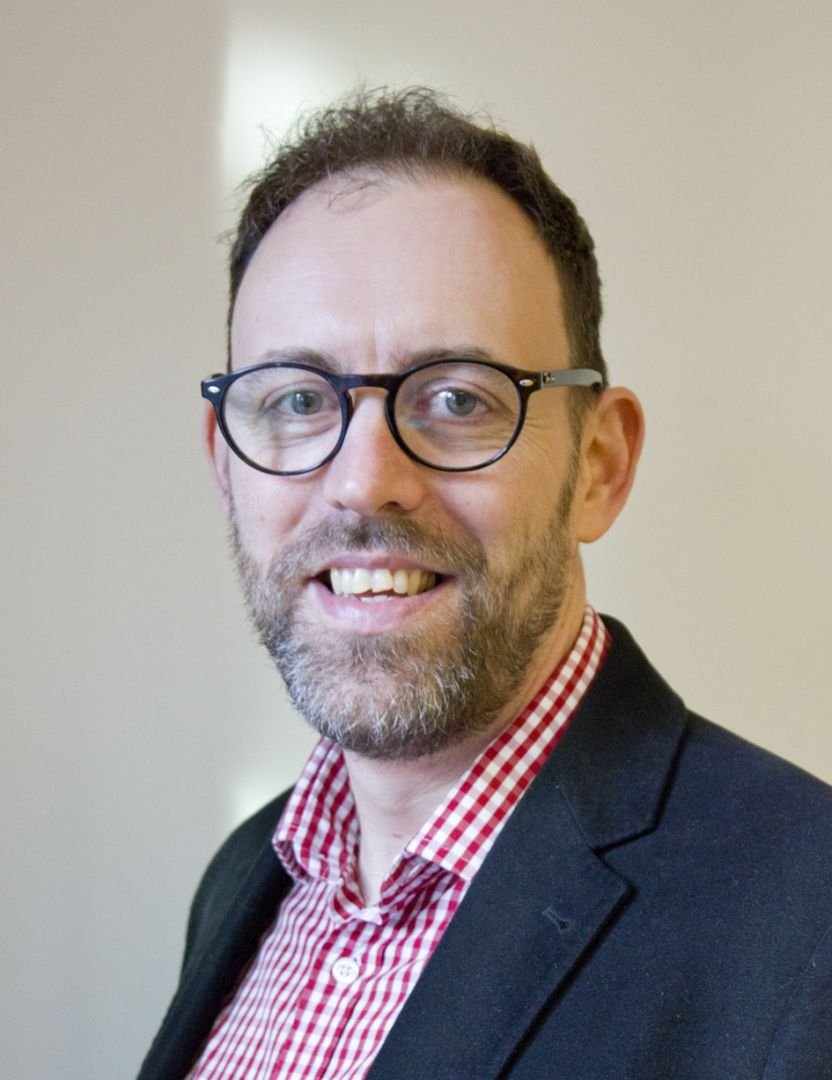 The Clinical Forum met virtually on Tuesday. The meeting was chaired by Dr James Thomas. Forum members include medical directors, GPs, pharmacists, allied health professionals, lead nurses and NHS England colleagues. Members received an update on supporting system stabilisation and reset, including emerging priorities, ahead of the Partnership Board meeting and themes from the World Café which was held on Thursday 28 May, which included programme and local place based colleagues (Bradford district and craven; Calderdale, Harrogate, Kirklees, Leeds and Wakefield) from across all sectors. Themes from the day included the strength of local places, maintaining digital capacity and tackling health inequalities – and the links between acute hospital care and community support.
The Clinical Forum met virtually on Tuesday. The meeting was chaired by Dr James Thomas. Forum members include medical directors, GPs, pharmacists, allied health professionals, lead nurses and NHS England colleagues. Members received an update on supporting system stabilisation and reset, including emerging priorities, ahead of the Partnership Board meeting and themes from the World Café which was held on Thursday 28 May, which included programme and local place based colleagues (Bradford district and craven; Calderdale, Harrogate, Kirklees, Leeds and Wakefield) from across all sectors. Themes from the day included the strength of local places, maintaining digital capacity and tackling health inequalities – and the links between acute hospital care and community support.
As a Partnership we are considering how we can support colleagues across social care, community and hospital care to act with confidence and integrity during this time and into the future; ensuring that all of us act in accordance with a single set of ethical principles is one way this can be achieved. A broad ethical principle strategy has been produced. The strategy has been generated by looking at various ethical thinking which has been published in recent weeks. The aim is to draw on good practice and make it relevant for West Yorkshire and Harrogate, whilst ensuring the safety of those who access care and colleagues so they are working in a safe working environment with duties fulfilled. Forum members agreed to adopt and share this with existing ethical committees, partner organisations and beyond. It will be interesting to hear how the framework has been used and insight will be brought back to the Clinical Forum at a future meeting.
Forum members put forward their views for the future as to what changes we want to embed, what changes we want to stop and what alternatives there might be that we could capture, understand and plan for sustaining. The positives include GP practices working together, mutual aid support and sharing staff.
The Joint Committee of the Clinical Commissioning Groups
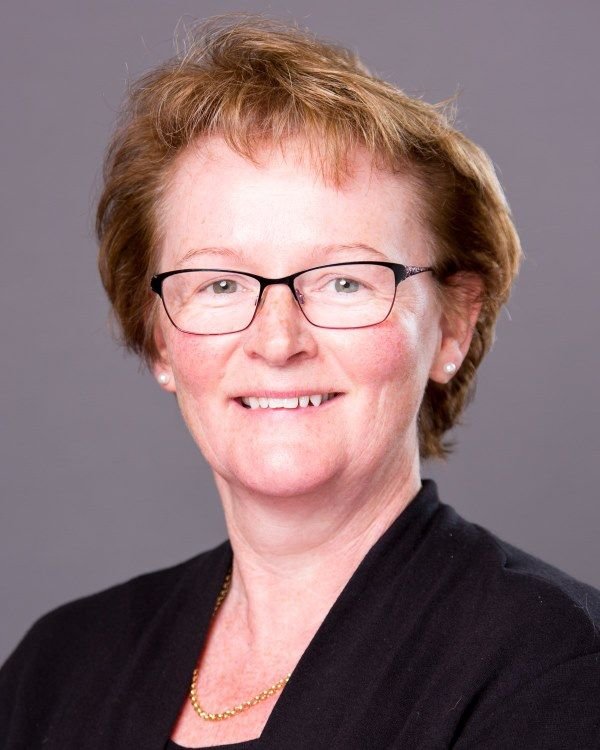 The Joint Committee of the CCGs held a development session on Tuesday, chaired by Marie Burnham, our independent lay chair. The Committee is made up of the West Yorkshire Clinical Commissioning Groups (CCGs). It has delegated powers from the CCGs to make decisions on specific work programmes.
The Joint Committee of the CCGs held a development session on Tuesday, chaired by Marie Burnham, our independent lay chair. The Committee is made up of the West Yorkshire Clinical Commissioning Groups (CCGs). It has delegated powers from the CCGs to make decisions on specific work programmes.
The Accountable Officers continue to meet on a weekly basis to share information, good practice, challenges and solutions with a focus on the response to COVID-19. More recently this has been about the next phase of system reset.
Members took stock of where the Committee had got to before the lockdown. The refocus on COVID-19 has meant that some ‘business as usual’ activities, including approval of the Committee’s annual report, have been carried out virtually.
Moving forward, members agreed that the Committee’s work plan would need to further evolve to reflect:
- Previously-agreed priorities.
- New priorities arising from the stabilisation and reset process and commissioning futures work.
- Strengthened approaches to mutual accountability and to measuring the impact of the Committee’s decisions. The Committee also held a discussion around the future of strategic commissioning across West Yorkshire, the journey to date in commissioning development, the current context of COVID-19 in terms of moving to phase 2, stabilisation and reset and the future opportunities to commission differently across the Partnership footprint.
West Yorkshire Association of Acute Trusts
The West Yorkshire Association of Acute Trusts (WYAAT) brings together the six acute trusts in West Yorkshire and Harrogate: Airedale NHS Foundation Trust, Bradford Teaching Hospitals NHS Foundation Trust, Calderdale and Huddersfield NHS Foundation Trust, Harrogate and District NHS Foundation Trust, Leeds Teaching Hospitals NHS Trust and Mid Yorkshire Hospitals NHS Trust.
The Association delivers the WY&H HCP ‘Hospitals Working Together’ programme which currently consists of nine programmes (procurement, workforce, Scan4Safety, pharmacy, radiology, pathology, vascular, orthopaedics and ophthalmology) and five clinical service networks (dermatology, gastroenterology, urology, maxillofacial surgery and cardiology).
The WYAAT Programme Executive met via video conference on Tuesday. The group discussed current issues facing the trusts in responding to the COVID-19 pandemic.
They shared their approaches and the challenges in restarting elective services while maintaining social distancing and infection control. This will have a significant impact on capacity to provide care for people compared to pre-COVID-19 and on how care is delivered.
All the Chief Executives reflected on the radical change to virtual consultations for many outpatient appointments, noting that feedback from people that many do not want to attend hospital unless it is absolutely necessary.
The Chief Executives took some time to reflect on what they have learnt from the pandemic. All recognised that the relationships built up between the trusts through WYAAT have been really important. They have enabled mutual aid, for instance on PPE, equipment and consumables, and allowed development of common approaches to clinical, operational and workforce issues. There was a sense that the pandemic has widened the understanding and recognition of the value WYAAT and the Partnership add, and has strengthened relationships with the local authorities.
Building on agreements pre-COVID-19, the elective surgery programme will integrate with the Partnership’s planned care programme to create a single planned care alliance programme.
Mental health, Learning Disabilities and Autism Programme Board (MHLDA)
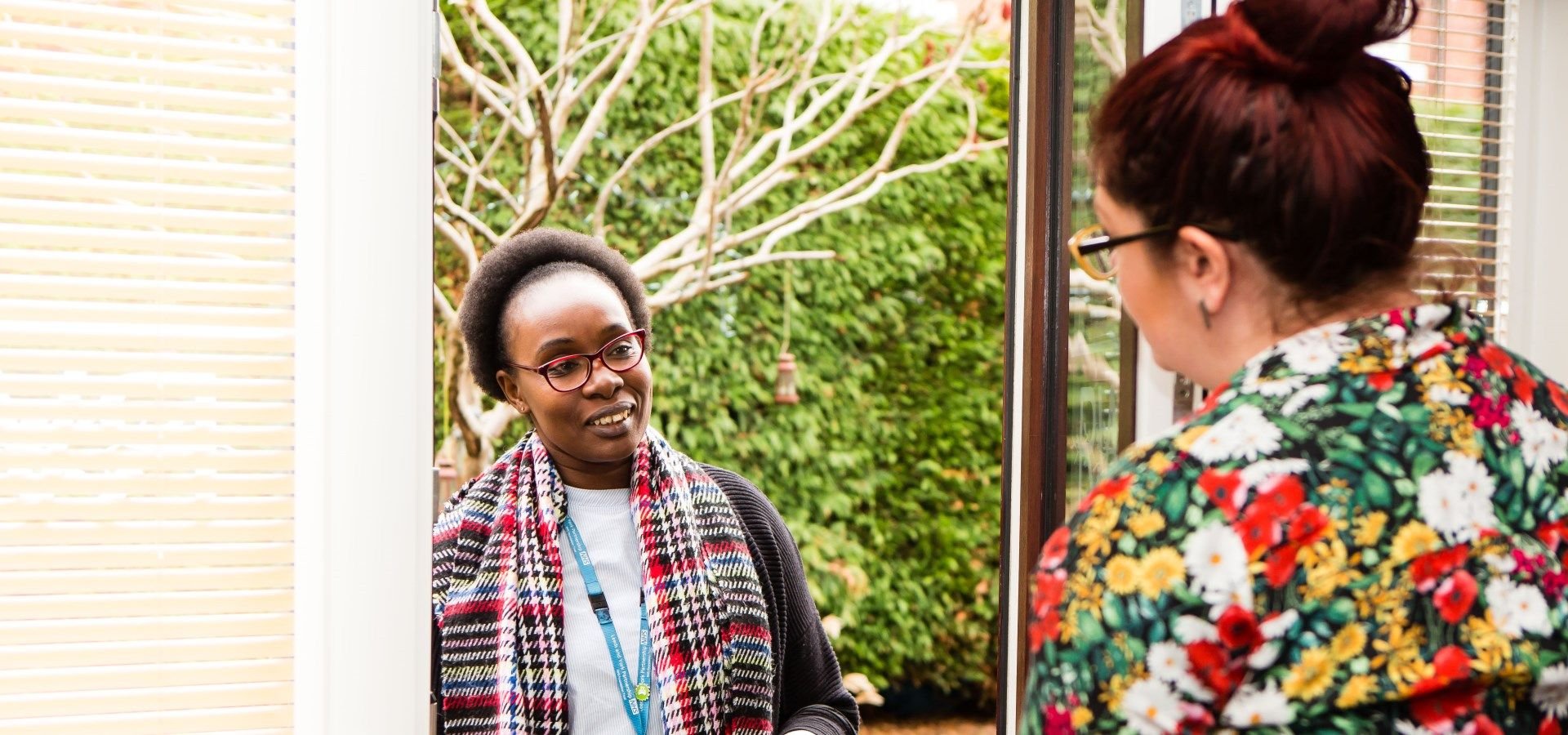 The MHLDA collaborative continues to share work in relation to crisis care, including support people, movement of staff between organisations, learning lessons from the COVID-19 period and ‘mutual aid’ conversations. These will continue in the same/similar format for as long as needed.
The MHLDA collaborative continues to share work in relation to crisis care, including support people, movement of staff between organisations, learning lessons from the COVID-19 period and ‘mutual aid’ conversations. These will continue in the same/similar format for as long as needed.
We have also launched a ‘Keeping Connected’ project with Inclusion North to support people with neurodiversity who would ordinarily support themselves and may need extra help during the COVID-19 period.
There is a restarting of work streams to develop West Yorkshire and Harrogate solutions in line with our wider MHLDA Five Year Plan. This includes discharge and autism diagnosis and support. Actions are being developed to take forward our commitment to the Mental Health Prevention Concordat.
In addition we are taking forward new work as a result of the COVID-19 period. Our grief and loss helpline will be operational and we will learn from this and make changes as needed. We will build on the learning from the six local places on the impact of new ways of working to establish consistency of approach in video consultations, and work towards supporting the sustainability of voluntary and community sector partners in providing local care and support for vulnerable people.
Work is also underway to fast-track the development of a shared staff bank and consistent prevention management of violence and aggression training across the MHLDA collaborative and understanding capacity across the Partnership to provide varying degrees of psychological support to staff and patients; including whether there is a need for system-wide provision of more specialist support to people.
West Yorkshire and Harrogate Black Asian Minority and Ethnic Network of Networks
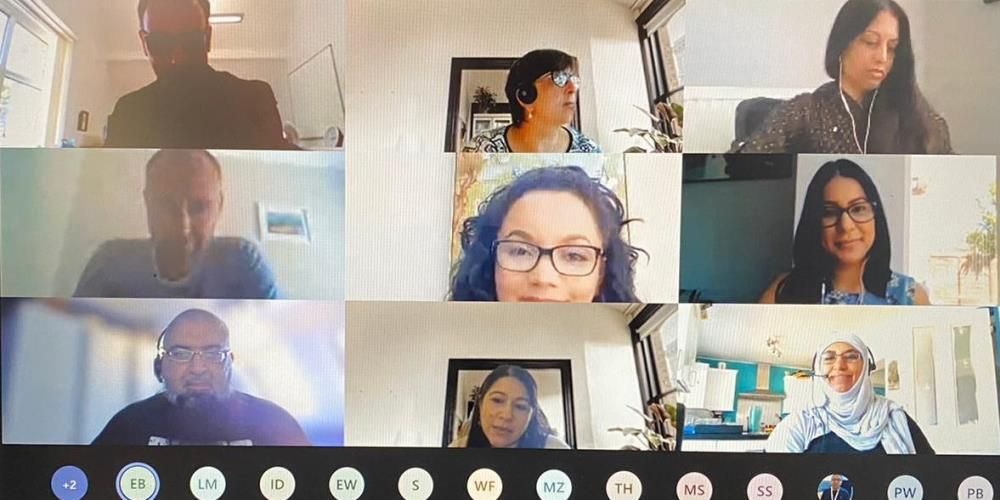 The network met on Wednesday for their third meeting. It was chaired by Fatima Khan-Shah, Programme Lead for the Unpaid Carers Programme and Personalised Care, and with representation from across the six places (Bradford district and Craven; Calderdale, Harrogate, Kirklees, Leeds and Wakefield) including councils, clinical commissioning groups and community health providers.
The network met on Wednesday for their third meeting. It was chaired by Fatima Khan-Shah, Programme Lead for the Unpaid Carers Programme and Personalised Care, and with representation from across the six places (Bradford district and Craven; Calderdale, Harrogate, Kirklees, Leeds and Wakefield) including councils, clinical commissioning groups and community health providers.
The network discussed progress towards the Partnership’s ambition and also received an update on the Covid-19 response, which included the creation of a task and finish group to facilitate conversations surrounding supporting research, understanding the data, tailored communications and bespoke health and wellbeing resources, with representation in decision making. There was a presentation from the population health programme on understanding the impact of Covid-19 on BAME communities and colleagues. This was presented by Sarah Smith (Programme Director for Improving Population Health Management Programme) and Cherill Watterston, from South West Yorkshire Partnership NHS Trust. Madi Hoskins, from the West Yorkshire Association of Acute Trusts (hospitals working together) gave an update on risk assessments. The system and leadership development programme provided an update on a high potential proposal to support colleagues. Wasim Feroze from Leeds City Council provided an update on the listening events taking place across the region to understand themes and showcase good practice.
New public health report
Our Partnership welcomed the report findings published by Public Health England on Tuesday 2 June regarding the disparities in the risk and outcomes of COVID-19. It provides further evidence, should we need it, that the impact of COVID-19 has replicated existing health inequalities we know exist across West Yorkshire and Harrogate communities. It is a useful contribution to the evidence base and our work already well underway. You can read our response here.
Can You Hear Me? - new episode out now
'Can You Hear Me?' is a new podcast giving a voice to the diverse talent working to improve health and care for people in West Yorkshire and Harrogate, presented by our Black, Asian and Minority Ethnic Staff Network. Episode 2 is about carers. It features presenter Mo Sattar, a GP in Leeds and member of the West Yorkshire and Harrogate Health and Care Partnership's BAME Staff Network, in conversation with Owen Williams OBE, Chief Executive at Calderdale and Huddersfield NHS Foundation Trust, and Sherone Phillips from the Palliative and End of Life Team within the Personalised Care Group at NHS England, who is also a carer herself. Listen here.

